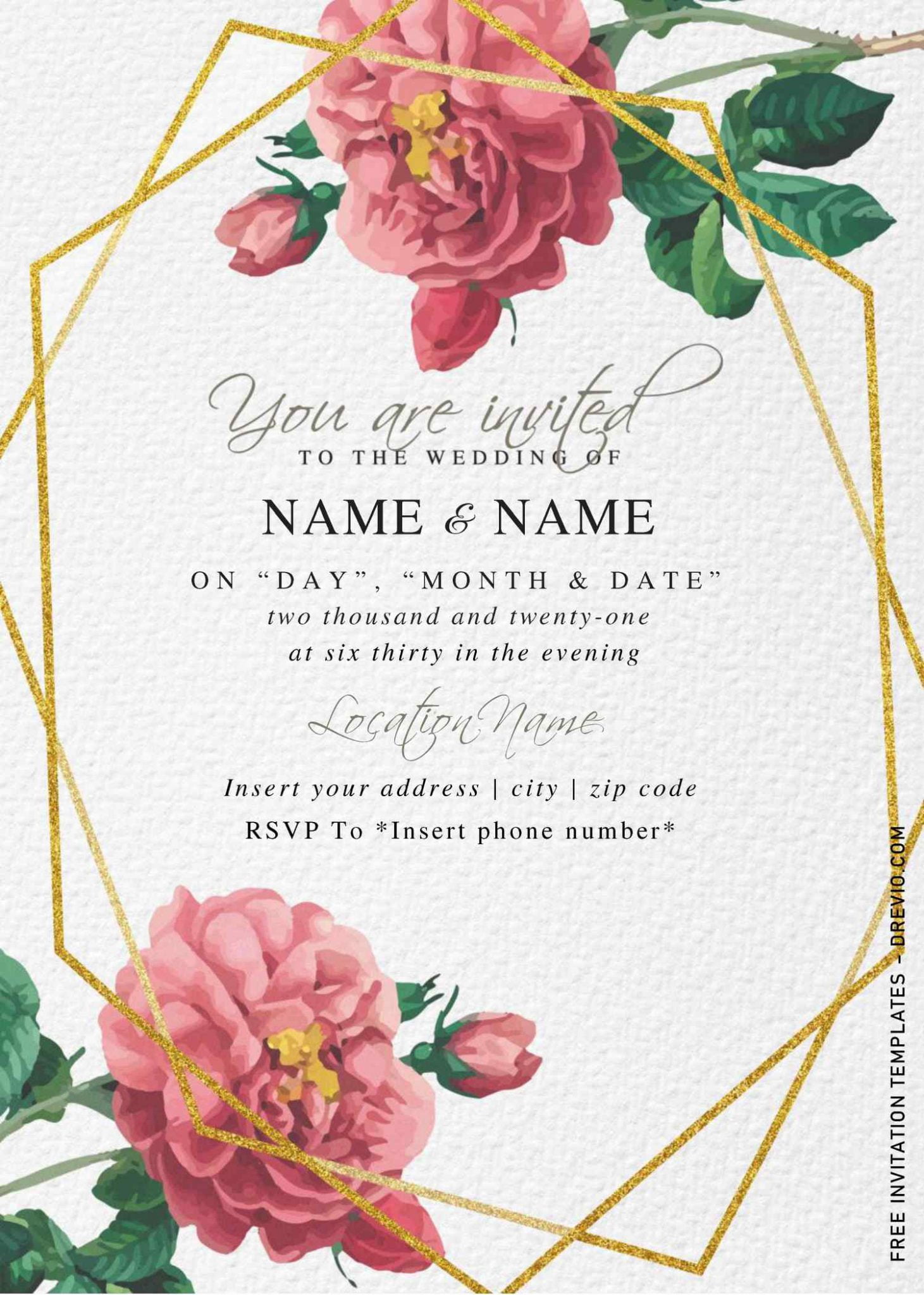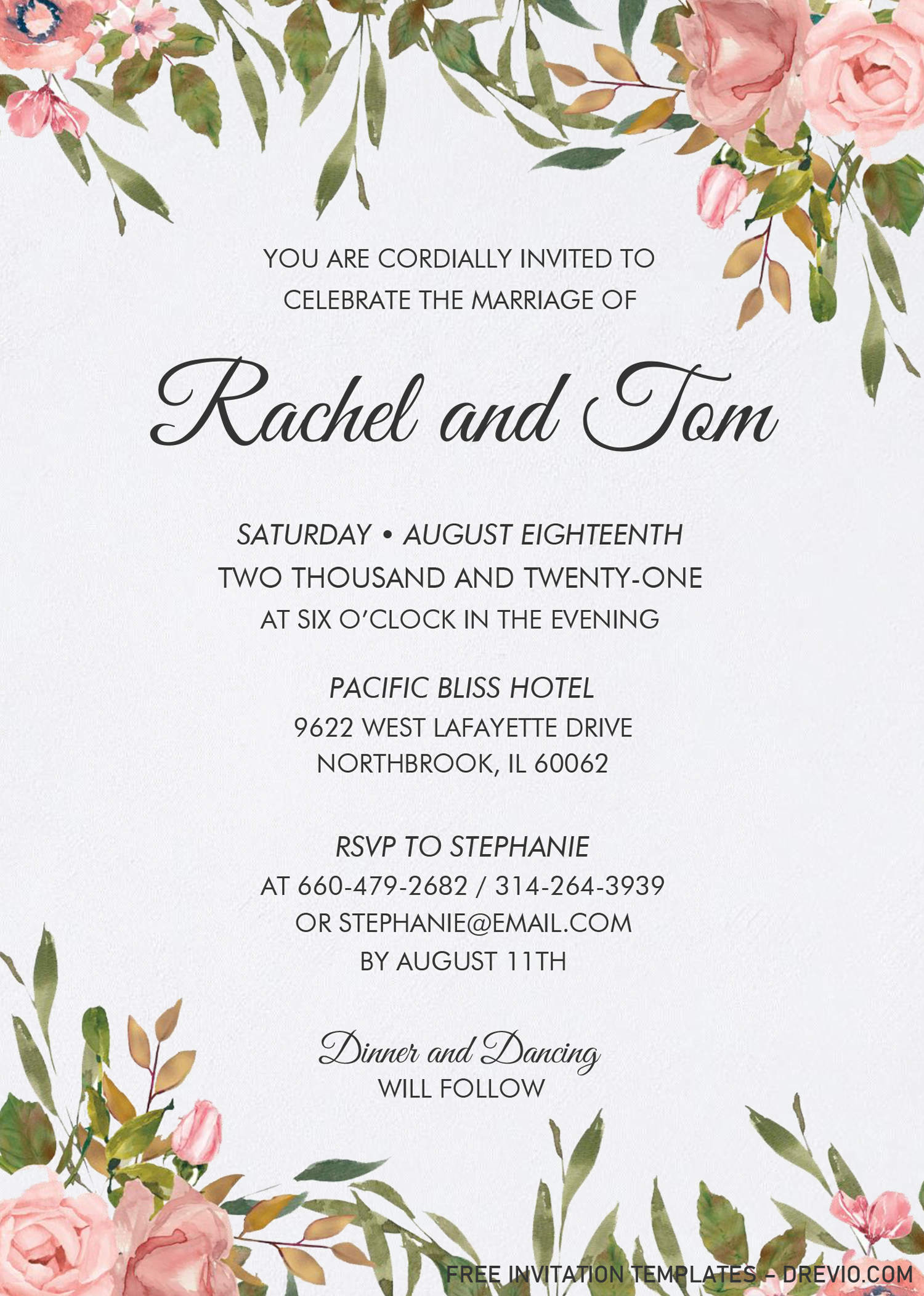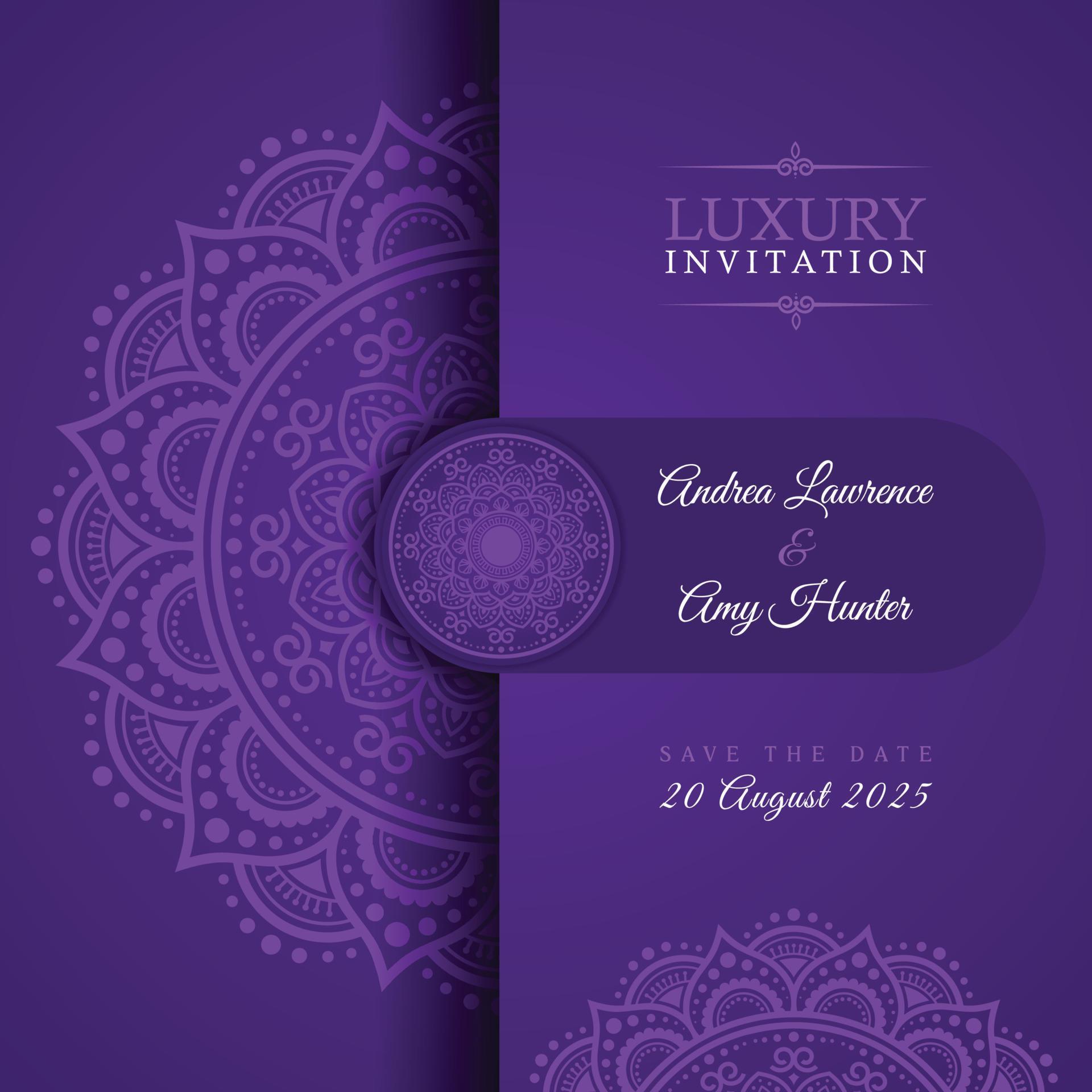Your Heartfelt Guide To The Perfect Invitation Statement For Marriage
Detail Author:
- Name : Santiago Moen
- Username : otha91
- Email : sporer.erich@bartoletti.biz
- Birthdate : 1996-01-18
- Address : 58716 Wilbert Junctions Suite 811 Ivahfort, ID 62512
- Phone : (701) 327-2331
- Company : Breitenberg-Stoltenberg
- Job : Purchasing Agent
- Bio : Accusamus qui nemo aut fuga beatae aut totam. Cumque explicabo occaecati dolorum nostrum.
Socials
facebook:
- url : https://facebook.com/arden_official
- username : arden_official
- bio : Voluptatem ipsa neque vel molestiae qui at.
- followers : 3689
- following : 2811
linkedin:
- url : https://linkedin.com/in/ardenheaney
- username : ardenheaney
- bio : Aspernatur autem odit veniam velit quia modi.
- followers : 220
- following : 2509
twitter:
- url : https://twitter.com/ardenheaney
- username : ardenheaney
- bio : Deleniti accusantium molestias sit repudiandae aut et. Est molestiae velit fugit quae amet error. Repellat et aut sed consequatur.
- followers : 6533
- following : 2576
Putting together an invitation statement for marriage can feel like a big moment, can't it? It's more than just sharing a date and a place; it's about letting your loved ones know you want them there for one of the most special times in your life. This little piece of writing carries all the warmth, excitement, and love you feel for your big day. It's truly the first glimpse your guests get of the celebration to come, so getting the words just right really matters.
You might be thinking about how to make it sound just like you, or maybe you're a bit puzzled about what words go where. Perhaps you've seen different ways people phrase things and it makes you wonder if you're doing it the "correct" way. It's a common thought, actually. There are so many options, from very formal greetings to much more relaxed ones, and figuring out which one fits your event can be a little tricky, you know?
This article is here to help you sort through all those thoughts. We'll look at how to pick the best words, clear up some common grammar puzzles like which little connecting words to use, and give you lots of ideas to make your marriage invitation statement truly shine. We'll even talk about how people respond to these invitations, so you get a full picture. Basically, we'll help you craft a message that feels just right for your unique celebration.
Table of Contents
- Why Your Marriage Invitation Matters So Much
- Getting the Words Right: The Core of Your Invitation
- Untangling Prepositions: 'To' or 'For' Your Invitation?
- Beyond the Main Statement: Responding to Invitations
- Personal Touches: Making Your Invitation Truly Yours
- Frequently Asked Questions About Marriage Invitations
Why Your Marriage Invitation Matters So Much
A marriage invitation is, in a way, the very first connection you make with your guests about your big event. It sets the feeling, tells people what to expect, and gets them excited to celebrate with you. Think of it as a warm hello, a personal touch that lets everyone know they're a part of something truly special. It's not just about giving information; it's about sharing a feeling, a moment of joy. So, choosing your invitation statement for marriage with care can really make a difference in how your guests feel about coming.
Sometimes, people might feel a bit lost when they start to write these things. They wonder, "Is this too much? Is this too little?" It's a common worry, you know? But the good news is, there's no single "right" way that works for everyone. The best way is the one that speaks from your heart and shows off your personality as a couple. This statement is a little piece of your story, shared with those you hold dear. It's almost like a tiny preview of the happiness to come, so, you want it to be just right.
This small card or message also helps your guests prepare. It tells them about the kind of gathering it will be, like if it's a very dressy affair or something more relaxed. This helps them choose what to wear and how to think about the day. It also, quite practically, lets them know where and when to show up. So, it really serves many purposes beyond just saying "come to our wedding." It's a key piece of communication, and that's why we spend time getting it right.
Getting the Words Right: The Core of Your Invitation
When you're putting together your invitation statement for marriage, the words you pick are so important. They carry the whole feeling of your day. It's not just about getting the facts down; it's about making people feel happy and welcome. There are a few things to think about as you start writing, like the overall feel you want to create and who exactly is doing the inviting. It really shapes the whole message, you know?
Finding the Right Tone: Formal, Casual, or Something in Between?
The tone of your invitation statement for marriage really sets the stage. Are you picturing a very traditional event with everyone dressed up, or a more laid-back gathering in a garden? Your words should match that feeling. For a very formal event, you might use phrases like "request the honor of your presence." This sounds quite grand, doesn't it? It signals a serious, perhaps evening, affair. On the other hand, if your celebration is more relaxed, you could say something like "join us as we tie the knot" or "celebrate with us." This feels much more friendly and open, more like a casual chat.
Many couples these days go for something in the middle, a kind of "semi-formal" tone. This allows for a bit of warmth and personality while still showing respect for the occasion. You could say, "We would love for you to celebrate with us" or "You are invited to witness our marriage." These phrases are welcoming but still show the importance of the event. It's about finding that balance that feels true to you both, so, take your time deciding on this.
The Big Question: Who is Inviting?
Traditionally, the parents of the bride would be the ones inviting guests. You'd often see "Mr. and Mrs. [Parents' Last Name] request the honor..." But times have changed quite a bit, haven't they? Now, it's very common for the couple to invite guests themselves, or for both sets of parents to be included. Sometimes, even children from previous relationships are mentioned as part of the welcoming party. This choice also helps shape your invitation statement for marriage.
If the couple is inviting, you might start with "Together with their families, [Couple's Names] invite you..." or simply "[Couple's Names] invite you to celebrate..." If parents are hosting, their names would come first. For example, "Mr. and Mrs. John Smith and Mr. and Mrs. David Jones request the pleasure of your company..." It really just depends on who is putting on the event, and how you want to present that. This decision, too, helps make the invitation feel authentic to your situation.
Key Details to Include, and How to Say Them
Beyond the main invitation statement for marriage, there are some really important pieces of information that your guests need to know. These include the names of the couple, the date and time of the ceremony, the location of the ceremony, and the location of the reception if it's different. It's also good to include RSVP information, like a date to reply by and how to do so. This helps everyone plan, you know?
Here's a simple breakdown of how to present these:
- Names: Clearly state the full names of the people getting married.
- Date and Time: Write out the day of the week, the full date, and the time. For example, "Saturday, the fifteenth of October, Two Thousand Twenty-Four at five o'clock in the evening."
- Location: Give the full address of the ceremony and reception. Include the name of the venue.
- RSVP: Provide a reply-by date and a way to respond, like a website or a return card. You might say, "Kindly respond by October first."
Sometimes, people also include information about dress code, gift registries, or transportation, often on a separate insert or a wedding website. This keeps the main invitation clean and focused on the core message. It's all about making it easy for your guests to understand and plan their attendance.
Untangling Prepositions: 'To' or 'For' Your Invitation?
This is a question that comes up quite a bit, actually, and it's a good one! Many people wonder whether to use "to" or "for" with words like "invite" or "invitation." As someone who has spent time looking at different English materials, I can tell you this puzzle is a common one. It's about how these little words connect ideas, and sometimes it feels a bit tricky, doesn't it? Let's clear this up, so you feel sure about your invitation statement for marriage.
When to Use 'To' with Invitations
Most of the time, when you're talking about an invitation or inviting someone, "to" is the word you'll want. It points directly to the event or the purpose of the invitation. Think of it as showing the direction or the reason for the invite. For example, if you're sending an invitation, you're sending it *to* something specific. This is quite standard, you know?
Here are some ways you'd use "to":
- "We sent an invitation to the wedding." (The invitation leads to the wedding.)
- "You are invited to our marriage ceremony." (You are being asked to come to the ceremony.)
- "They received an invitation to the reception." (The invitation is for the reception.)
- "He invited me to a date." (The invitation is for the date.)
This is the most common and generally accepted way to phrase these things. It just feels right in most situations, connecting the act of inviting with the event itself. So, if you're ever unsure, "to" is usually a safe bet for your invitation statement for marriage.
When 'For' Might Be the Better Fit
While "to" is very common, "for" can also be used in certain situations, though it's less frequent when directly referring to the event itself. "For" often suggests a purpose or a reason. You might use "for" when talking about the *reason* you're inviting someone, rather than the event they are invited *to*. It's a subtle difference, but it's there. It's almost like you're stating the benefit or the purpose behind the invitation.
Consider these uses of "for":
- "This invitation is for you." (The invitation is intended for a specific person.)
- "We prepared invitations for all our guests." (The invitations are meant for the guests.)
- "Is this invitation for the evening party?" (Asking about the purpose or recipient of the invitation.)
You wouldn't typically say "invited me for a wedding" or "invitation for the ceremony" in the same way you'd say "invited me to a wedding." The use of "for" in relation to the event itself is much less common and can sometimes sound a little off. So, for your invitation statement for marriage, sticking with "to" when referring to the event is generally the clearer and more natural choice.
Real-Life Examples for Clarity
Let's look at some direct examples to really nail this down for your invitation statement for marriage.
- Correct: "We request the pleasure of your company to our wedding celebration."
- Less common/Potentially awkward: "We request the pleasure of your company for our wedding celebration." (This sounds more like the company is *for* the celebration, not that you are invited *to* it.)
- Correct: "You are invited to the marriage of [Couple's Names]."
- Correct: "Please join us to celebrate our union."
The core idea is that "to" shows movement or direction towards the event. "For" shows purpose or a recipient. So, when you're thinking about inviting someone to your marriage, you're inviting them *to* the event itself. This distinction, while small, makes a big difference in how your message comes across. It's really just about choosing the most direct and clear way to say what you mean, isn't it?
Beyond the Main Statement: Responding to Invitations
Once you've sent out your beautiful invitation statement for marriage, the next part is hearing back from your guests! And just like sending an invitation has its ways of doing things, so does responding to one. It's all part of the dance of social gatherings, you know? Knowing how to reply, whether it's a 'yes' or a 'no,' is just as important as knowing how to ask someone to come.
The Art of a Polite 'Yes'
When a guest decides they can come, their reply should be clear and polite. Often, invitations will include an RSVP card or a link to a website where guests can simply check a box. But sometimes, a more personal message is needed, especially for very formal events or if the invitation was sent in a less formal way. The key is to confirm attendance clearly and perhaps add a little note of happiness. This is rather straightforward, isn't it?
For example, if it's a business occasion or a very formal event, a reply might be along the lines of: "Thank you for inviting me to attend. I am pleased to accept your kind invitation to [Event Name] on [Date]." For a personal marriage invitation, it could be warmer: "We would be absolutely delighted to celebrate with you on your special day! Thank you so much for the invitation." It's about showing gratitude and confirming your presence. People really appreciate a quick and clear answer.
Gracefully Declining an Offer
Sometimes, for various reasons, a guest just can't make it. And that's perfectly fine! The important thing is to decline gracefully and as soon as possible. This allows the couple to get an accurate headcount and plan accordingly. You don't usually need to give a long explanation for why you can't come, but a short, polite note is always good. It shows respect for the couple and their event, you know?
A simple way to decline might be: "Thank you so much for the kind invitation to your marriage celebration. Unfortunately, we will not be able to attend, but we wish you both a wonderful day!" Or, for a more formal situation: "Thank you for the invitation to [Event Name]. Regrettably, I will be unable to attend." The main point is to be clear, express thanks, and send good wishes without over-explaining. It's just a courteous thing to do, really.
Digital Replies and Modern Manners
In our current times, many invitations, even for marriages, come with digital RSVP options. This might be a link to a wedding website or an email address. The rules for replying are much the same, but the method is different. When you get an invitation statement for marriage with a digital reply option, it's often the quickest and easiest way to respond. Just make sure you fill out all the necessary information, like meal choices or plus-ones. It's almost like a digital version of the traditional RSVP card.
Even with digital replies, a short, personal message can still be a nice touch if the platform allows it. For example, after clicking 'yes' on a website, you might send a quick email to the couple saying how excited you are. This shows you're truly looking forward to it. The key is to respond by the requested date, no matter the method, so the couple has accurate numbers. This is a common courtesy that never goes out of style, is that right?
Personal Touches: Making Your Invitation Truly Yours
While there are common ways to phrase an invitation statement for marriage, adding your own personal touches can make it truly memorable. This is your day, after all, and your invitation is a chance to show off your personalities as a couple. It's about making it feel warm and genuine, like a little piece of you. This is where your unique story can really shine through, you know?
Adding a Bit of Your Story
Think about what makes your relationship special. Is there a shared hobby, a favorite place, or a funny inside joke? You don't need to write a whole book, but a small nod to your story can make your invitation statement for marriage feel very personal. For example, if you both love hiking, maybe your invitation could feature a subtle mountain design or a quote about paths. Or, if you met in a coffee shop, perhaps a little coffee bean detail. These small things can make a big impact.
You could also include a short, heartfelt sentence about your journey together. Something like, "After many adventures and much laughter, we are so happy to finally say 'I do!'" or "Our hearts found their home, and now we invite you to celebrate our beginning." These little additions make the invitation more than just a request; they make it a shared moment. It really connects with people on a deeper level, doesn't it?
Creative Wording Ideas
Beyond traditional phrases, there are so many ways to get creative with your invitation statement for marriage. If you're a playful couple, you might use more whimsical language. If you're very spiritual, you could include a meaningful quote. The goal is to reflect who you are. This is where you can really have some fun with it, you know?
Here are some ideas for a fresh approach:
- Playful: "He popped the question, she said yes! Now let's celebrate!"


